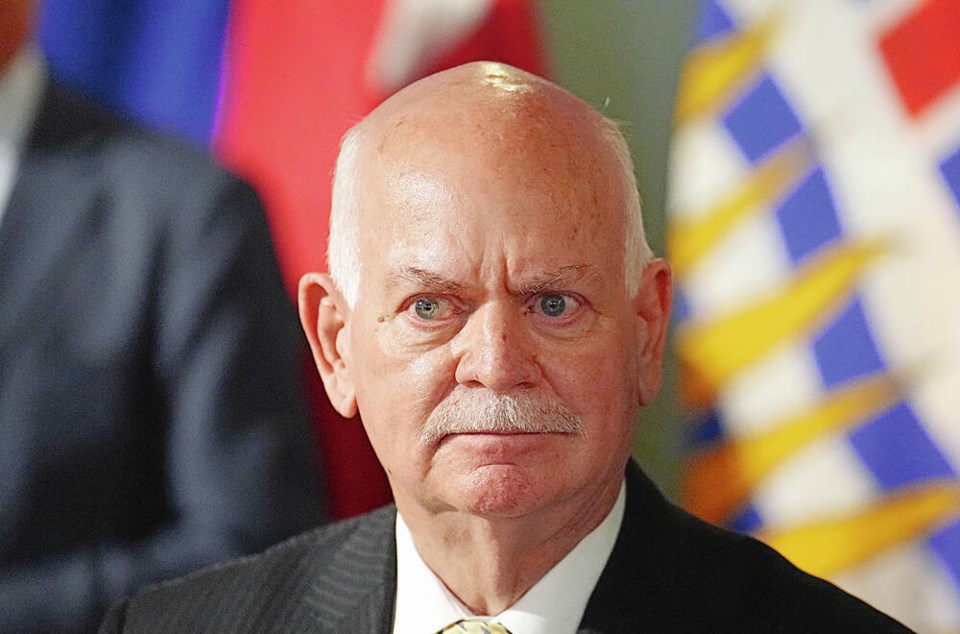Premier David Eby’s appointment of Surrey-Guildford MLA Garry Begg as sa国际传媒’s solicitor general could signal that significant police reform is on the way, according to a former solicitor general.
Kash Heed, a former police officer who was minister of public safety and a solicitor general under a sa国际传媒 Liberal government from 2009 to 2013, says the appointment of Begg has made him more encouraged than ever that substantive reform could take place, including a move to a provincial police force.
Begg, a retired RCMP inspector who finished his nearly 40-year career in Surrey, was a member of a 10-person all-party committee of MLA recommended sweeping changes to policing in 2022, including dumping the RCMP and moving to a provincial police force as in Ontario and Quebec. The report said a provincial force would increase local accountability and decision-making, and responsiveness and connection to the community, with key decisions no longer being made in Ottawa.
Another veteran police officer, Terry Yung, who worked for the Vancouver Police Department, has been appointed as minister of state for community safety and integrated services.
Heed said he did not think Begg’s appointment was coincidental, but was a strategic move.
“He understands policing here in the province. He understands the complexities involved in reforming policing in British Columbia,” Heed said. “He understands the roadblocks. He understands the political environment, and he certainly understands the operational environment involving the RCMP wanting to flex their political standing as a federal police agency.”
Begg, who was in briefings for his new role, was not available for an interview, according to ministry officials.
In a written response to Postmedia questions, Begg did not say whether the province would be working on moving to a provincial police force or combining numerous police forces into regional forces in Metro Vancouver and Greater Victoria.
Instead, Begg provided a more vague statement that said important conversations about reforming policing are essential to keeping pace with a changing world. He noted the all-party committee had begun this work to reshape policing with a focus on accountability, mental health response and addressing systemic racism.
“As the newly appointed minister of public safety and solicitor general of British Columbia, I am committed to building on the foundational work that we have already completed and drawing on my extensive, hands-on experience to ensure that police services are fair, equitable and responsive to the needs of vulnerable groups for the future work to come,” said Begg.
The sa国际传媒 NDP government, which won re-election to a four-year term in October, has implemented some recommendations from the all-party report, including changing some rules around municipal police boards, but has not made any major changes.
Heed noted that if there is to be substantive change, a key start is to set timelines.
The all-party committee recommendations were aimed at creating a community-based policing model — including more Indigenous-led policing — to restore trust among marginalized communities that say they face police brutality, racial profiling and over-policing.
They also included a recommendation that police should no longer be the first and often-only responders to people in mental health and addictions crises.
Begg’s predecessor, former-solicitor general Mike Farnworth, had said that moving to a provincial police force was not on the front burner for government and that he expected the RCMP to be policing in the province for quite a long time.
Heed had floated the idea of a provincial police force in 2009. The public inquiry after the murders by Robert Pickton, headed by former sa国际传媒 Attorney General Wally Oppal, called for a single regional police force in Greater Vancouver. Since then, Oppal has supported a provincial police force.
Adam Olsen, a former Green MLA who did not run again in the recent election, and who was also a member of the all-party policing committee, said he is pleased to Begg became solicitor general.
“Now we’ll see exactly how much of a mandate he will have to implement the (all-party) recommendations.”
Olsen, who has advocated full implementation of the recommendations, said there was a missed opportunity in not immediately appointing a second all-party committee to oversee the implementation of changes recommended in the first committee’s report.
He said in order to regain the spirit of co-operation that existed among the all-party committee, and with the election of the new sa国际传媒 Conservative party as opposition, it may be necessary to re-establish the committee and carry out some further work.
Olsen said co-operation of all parties would be needed to carry out the change to a provincial police force as it could take place over several election terms.
Provinces, including sa国际传媒, had expressed concerns that the federal government was considering ending policing to provinces and municipalities by the Mounties when the current contract expires in 2032. But last summer, the federal government announced contract policing would continue.
The RCMP in sa国际传媒, which has the largest contingent of any province, has had a 20 per cent vacancy rate from unfilled positions and officers on various types of leave.
The Union of sa国际传媒 Municipalities has been resistant to switch from the RCMP, largely over cost concerns.



